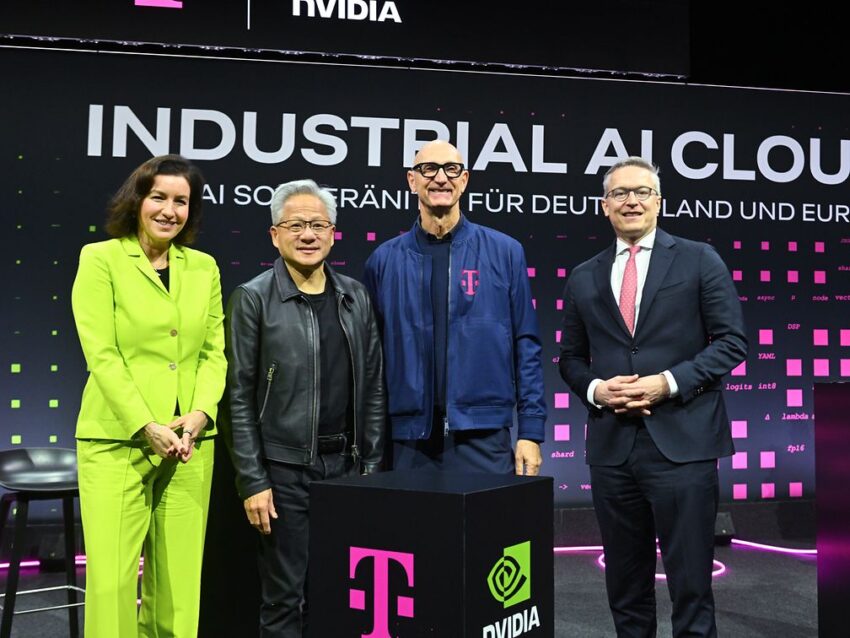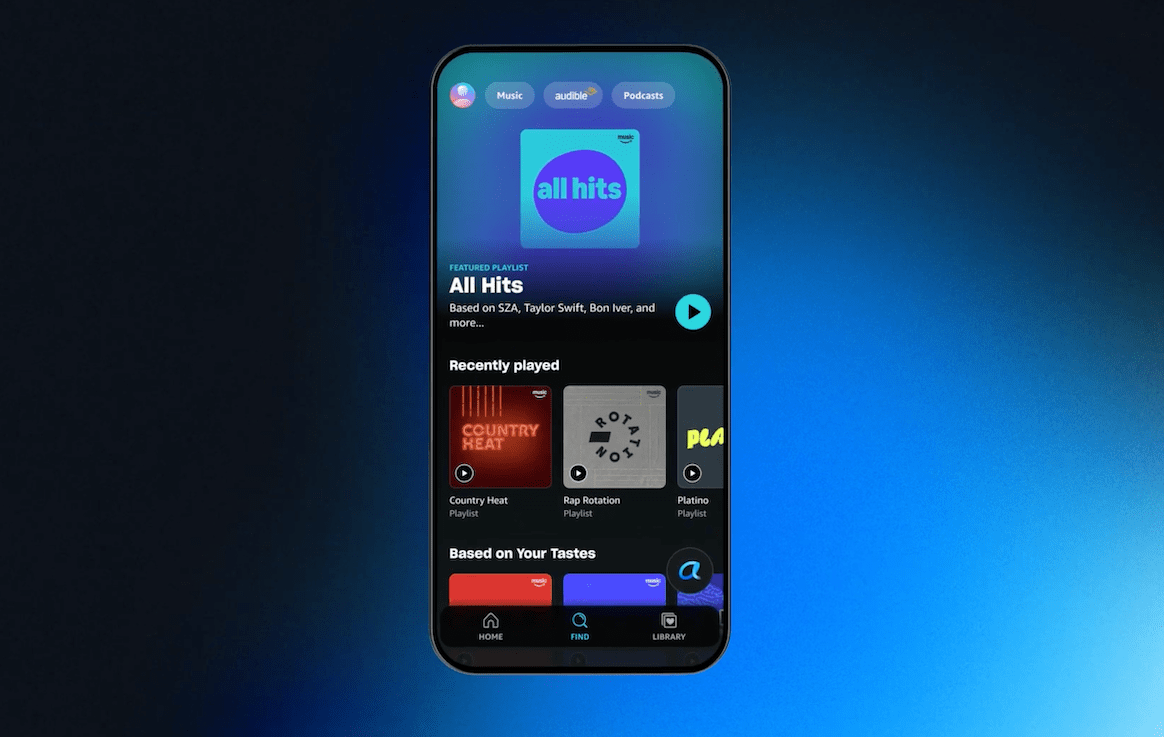
nvidia deutsche telekom strike 1b partnership for Nvidia has entered into a significant €1 billion partnership with Deutsche Telekom to establish an “AI factory” in Munich, a move that is expected to enhance Germany’s AI computing capabilities by 50%.
nvidia deutsche telekom strike 1b partnership for
Overview of the Partnership
The collaboration between Nvidia and Deutsche Telekom marks a pivotal moment in the advancement of artificial intelligence infrastructure in Germany. This partnership is not merely a financial investment; it represents a strategic alignment between two industry giants aiming to accelerate the development and deployment of AI technologies across various sectors. The AI factory is designed to serve as a hub for innovation, research, and development, ultimately positioning Germany as a leader in the AI landscape.
Objectives of the AI Factory
The primary objective of the AI factory is to significantly boost Germany’s AI computing power. By increasing this capacity by 50%, the partnership aims to facilitate the training of more complex AI models, which can lead to advancements in various fields such as healthcare, automotive, and manufacturing. The AI factory will provide the necessary infrastructure to support these developments, including high-performance computing resources and advanced data analytics capabilities.
Technological Implications
With Nvidia’s expertise in graphics processing units (GPUs) and AI technologies, the partnership is poised to leverage cutting-edge hardware and software solutions. The AI factory will utilize Nvidia’s latest GPU architectures, which are specifically designed to handle the demands of AI workloads. This includes deep learning, machine learning, and data analytics, all of which are critical for developing AI applications that can operate efficiently and effectively.
Furthermore, the collaboration will likely focus on optimizing the integration of AI into existing systems and processes. This could involve developing new algorithms and models that can be deployed across various industries, enhancing productivity and innovation.
Strategic Importance for Germany
Germany has been making strides in the AI sector, but it still faces challenges in terms of infrastructure and investment. The establishment of the AI factory is expected to address some of these challenges by providing a centralized location for AI research and development. This initiative aligns with Germany’s broader strategy to become a global leader in AI technology and innovation.
Government Support and Policy Framework
The German government has recognized the importance of AI for economic growth and has implemented various policies to support the development of this sector. The partnership between Nvidia and Deutsche Telekom is likely to receive backing from government initiatives aimed at fostering innovation and technological advancement. This support could come in the form of funding, regulatory assistance, and collaboration with academic institutions.
Potential Economic Impact
The economic implications of this partnership are significant. By enhancing AI capabilities, Germany could see increased productivity across various sectors, leading to higher economic growth. The AI factory is expected to create jobs, not only in the technology sector but also in industries that will benefit from AI advancements. This could include roles in data analysis, software development, and AI research.
Moreover, the partnership may attract additional investment in the German tech ecosystem, as other companies and startups look to collaborate with Nvidia and Deutsche Telekom. This could lead to a more vibrant innovation landscape, fostering the growth of new technologies and services.
Stakeholder Reactions
The announcement of the partnership has garnered attention from various stakeholders, including industry experts, government officials, and academic leaders. Many view this collaboration as a positive step towards strengthening Germany’s position in the global AI market.
Industry Experts
Industry experts have expressed optimism about the potential of the AI factory to drive innovation. They highlight the importance of having a robust AI infrastructure to support research and development. The partnership is seen as a model for future collaborations between technology companies and telecommunications providers, which can lead to more comprehensive solutions for AI deployment.
Government Officials
Government officials have also welcomed the partnership, emphasizing its alignment with national priorities. They see the AI factory as a critical component of Germany’s digital transformation strategy, which aims to enhance the country’s technological capabilities and competitiveness on a global scale.
Academic Institutions
Academic institutions are likely to benefit from the partnership as well. The AI factory could serve as a research hub, providing opportunities for collaboration between academia and industry. This could lead to advancements in AI research and the development of new educational programs focused on AI technologies.
Challenges and Considerations
While the partnership holds significant promise, there are also challenges and considerations that need to be addressed. The rapid pace of technological advancement in AI means that the AI factory must continually evolve to meet changing demands and expectations.
Competition in the AI Space
The global AI landscape is highly competitive, with numerous countries and companies vying for leadership. Germany faces competition from other European nations, as well as from the United States and China, both of which have made substantial investments in AI research and development. The success of the AI factory will depend on its ability to attract talent, investment, and partnerships that can drive innovation.
Regulatory and Ethical Considerations
As AI technologies continue to advance, regulatory and ethical considerations will become increasingly important. The partnership will need to navigate these challenges, ensuring that AI applications are developed responsibly and ethically. This includes addressing issues related to data privacy, algorithmic bias, and the societal impact of AI technologies.
Future Prospects
The establishment of the AI factory in Munich is just the beginning of what could be a transformative journey for Germany’s AI landscape. As the partnership progresses, it will be essential to monitor its impact on the industry, economy, and society as a whole.
Long-term Vision
The long-term vision for the AI factory includes not only enhancing Germany’s AI capabilities but also fostering a culture of innovation and collaboration. By bringing together industry leaders, researchers, and policymakers, the partnership aims to create an ecosystem that supports the continuous development of AI technologies.
Potential for Global Influence
If successful, the AI factory could position Germany as a global leader in AI research and development. This could lead to increased collaboration with international partners, further enhancing the country’s reputation in the tech industry. The partnership may also serve as a model for other countries looking to establish similar initiatives, promoting a global dialogue on AI development and ethics.
Conclusion
The €1 billion partnership between Nvidia and Deutsche Telekom to establish an AI factory in Munich represents a significant step forward for Germany’s AI ambitions. By boosting the country’s AI computing power and fostering innovation, this collaboration has the potential to reshape the technological landscape in Germany and beyond. As the partnership unfolds, it will be crucial to address the challenges and opportunities that arise, ensuring that the benefits of AI are realized responsibly and equitably.
Source: Original report
Was this helpful?
Last Modified: November 4, 2025 at 7:41 pm
2 views















